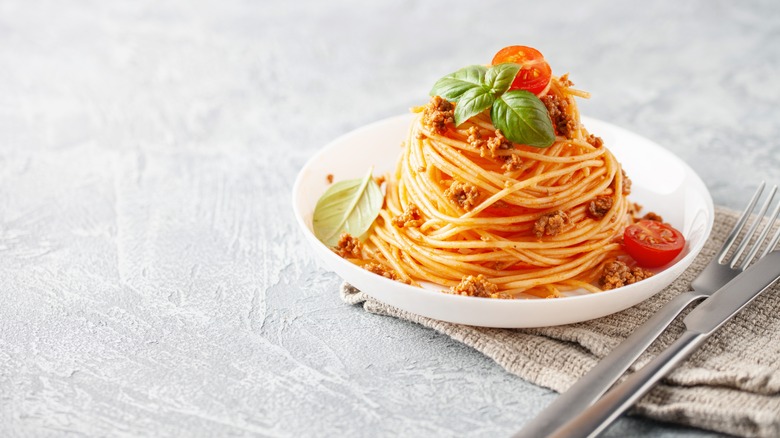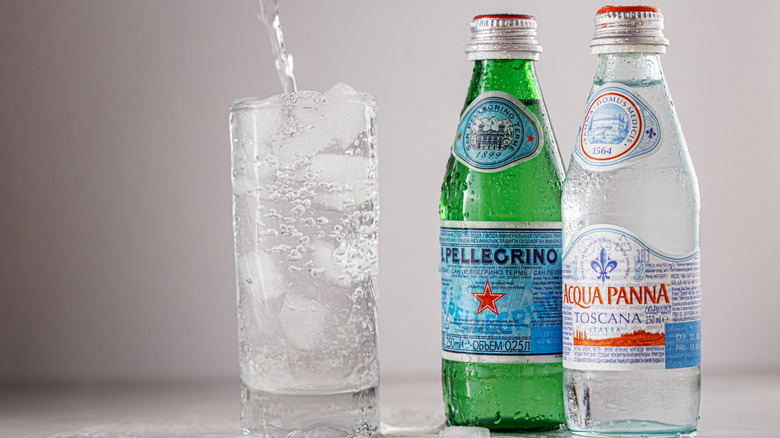Why You Won't Often Find Free Water At Restaurants In Italy
Fan of well-done steaks? Never order one in France — as explained by Love Food, it's not really a thing. And when in Japan, never tip waiters — it's seen as condescending. Plus, should you ever visit Italy, you'll find yourself confronted with a whole new set of unspoken rules.
For instance, unlike your local Italian restaurant where it's standard to be offered a blizzard of parmesan for your main, that might not happen in Italy. Parmesan just isn't offered with some dishes, as its pungent taste is considered to overpower many recipes. And when it comes to fish dishes such as spaghetti alle vongole (spaghetti with clams), it's an absolute no-no. Cheese and seafood is a huge taboo in the country — the reason commonly given being that the former overpowers the latter. But if you get flavorful fish (like mackerel) and mild cheese (like ricotta), this doesn't fully make sense. After doing a deep dive on the topic, Atlas Obscura suggests that it might actually be rooted in an ancient "humorism," where mixing certain foods was seen as bad for digestion.
And as outlined by Fodors, other Italian restaurant etiquette includes never ordering a cappuccino after an evening meal, as milky coffees are a morning thing. So no matter how much you love frothy, chocolate-dusted coffee with your tiramisu, avoid asking — unless you want to come over as a typical tourist. But what about ordering water — surely that's a no-brainer without any etiquette labyrinths to navigate?
In Italy, don't shock your waiter by asking for tap water
Not so, as you should never ask for free tap water in restaurants. As Fodors explains, usually, you'll be offered a bottle of still (naturaleor liscia) or sparkling (frizzante or gassata). You might occasionally be offered filtered — but you'll still be expected to pay for it. If you ask for the tap stuff, some waiters will simply refuse. And this isn't because the restaurant is trying to fleece you or because water from the tap is bad — Italians will drink it at home. Rather, it's because the water in Italy tends to be mineral-rich, making it hard.
The thing about hard water is that, as explained by The House Shop, it can give off a taste of chemicals or chalk, which might affect how accompanying food tastes. And according to the BBC, it can even result in a "chalky mouth-feel." So if you've got a sensitive palate — or are eating a subtle, delicate, or complex dish — this could affect your enjoyment of it. In the end, most Italian chefs want you to appreciate the flavors in your food (whether that's earthy oregano, woodsy porcini, or fresh, ripe tomatoes). The last thing they want is for your water to clash with their carefully crafted creation.
Finally, unless you wanted to see your waiter's face contort in horror, never, ever ask for pineapple on your pizza — but then, you probably knew that already.

